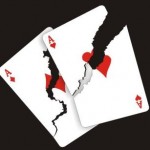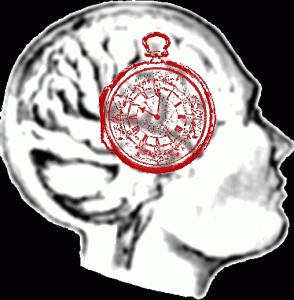Is Poker Luck? Cracked Pocket Aces Says Yes!
I often find myself asking, “is poker luck?” (talking strictly about No Limit Texas Hold’em here).
I mean it seems like it all depends on the cards that are turned over.
But back to the question at hand: “Is poker skill or luck?” — or what combination of each?
Let’s talk about “getting lucky” for a moment…
Having good luck in poker is not (necessarily) something you can control ( unless you believe in NLP 😉 ).
When it comes to changing your luck at poker, you could stop playing hands when you notice that you’re not getting good cards or if people keep getting lucky and “bad-beating” you.
Here are some examples from the recent (2009) World Series of Poker (WSOP) of where pocket aces were cracked.
Examples of Lucky Poker (Cracking AA)

Pocket Aces getting Cracked
Actually, Lon McEachern and Norman Chad (the WSOP commentators) mentioned that it takes more than pocket aces to make the final table.. and they are right!
1) Begleiter has Jack 9 of diamonds and raises to 450k. Lamb, sitting next to Begleiter, has pocket aces and raises it to 1.1 million. Begleiter is feeling lucky, so he calls.
The flop comes 5, Jack, 9 – Begleiter has Jacks up. He slow plays his two pair by checking to Lamb, who raises 1.5 million. Begleiter pushes all in and gets the call.
The turn and river are no help to Lamb, so his pocket aces were cracked!
The odds went like this (Begleiter/Lamb): Preflop (20/80) – Flop (75/25) – Turn (82/18)
So you can see, Begleiter was LUCKY enough to win when he only had 20% chance of doing so! Is poker luck? – that situation suggests it is!
2) Robbins raised with pocket aces, but didn’t raise enough because Akenhead raised all in pre-flop with K Q off suit. Robbins calls, and they flip the cards over.
Akenhead only had a 13% chance to win preflop, but when the flop came KJQ, his two pair put him at a 62% chance to win (that means Robbins still has a 38% change of winning this hand). But the next two cards that come out are blanks for Robbins and his pocket aces were cracked by two pair.
So Akenhead was having good poker luck because he turned his 13% into 62%, whereas Robbins couldn’t do anything with his 38%!
3) Robbins now doesn’t have many chips left, so when he gets pocket 10’s, he pushes all in. Cada has pocket aces, so he calls instantly.
Preflop, Robbins only has a 21% chance of winning (or splitting the pot). Flop comes 6, K, 2 rainbow – and now Robbins only has a 9% chance. The turn is a 5, and now Robbins only has a 5% chance of getting a 10 on the river to win the pot.
Is poker all luck? – Well when you go all in pre flop and are already behind in the hand, yes, poker is all luck at that point!
Guess what.. a 10 comes on the river and Robbins wins the hand to stay alive! It takes more than pocket aces to make the final table (or to win a hand in general!).
Being Good at Poker Involves Skill
These examples of where people are getting lucky and beating pocket aces are rare, I do admit that.
There are many hands played in every tournament or cash game – and some of them come down to someone getting really fortunate – but there is some skill involved too.
Raising to represent that you have a big hand can often scare your opponents away, even if they have the best hand (your raise makes them believe they are beat). Knowing when the other player is bluffing or doesn’t have the best possible hand takes skill, and practice is the only way to gain that skill.
But if someone asked “is poker luck?” – I would tend to say yes. I think it is more luck than skill, especially when you are very skilled yourself and are playing with people that are equally as skilled.
What do you think? Are you a poker player who knows something about the game? Comment below..
Why do the years go by faster as you get older?

Your perception of time
Have you ever noticed that the older you get, the faster the years seem to go by? It definitely seems or feels like time moves faster as you get older. I don’t believe that time changes its pace – but why does it feel like it does?
My theory is similar to Newton’s theory of relativity. Every unit of time that passes is a relatively shorter amount of your total lifespan; therefore your brain perceives that unit of time to be shorter.
Take the unit of time to be years, for example. The first 365 days after birth amounts to 100% of your total lifespan, at that moment. The next 365 days is then only 50%. As the years go on, they each become a smaller percentage Read more
